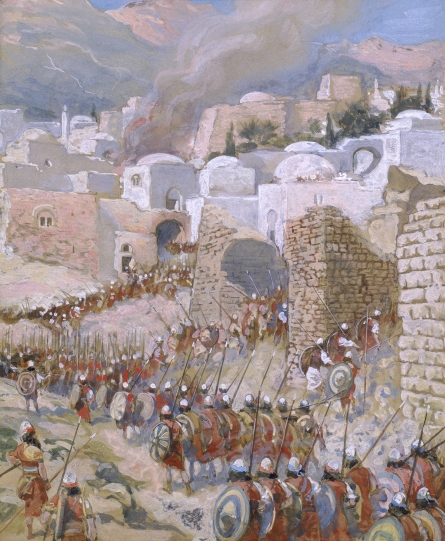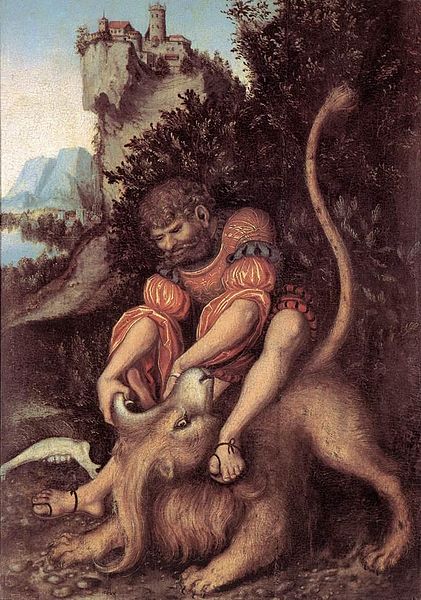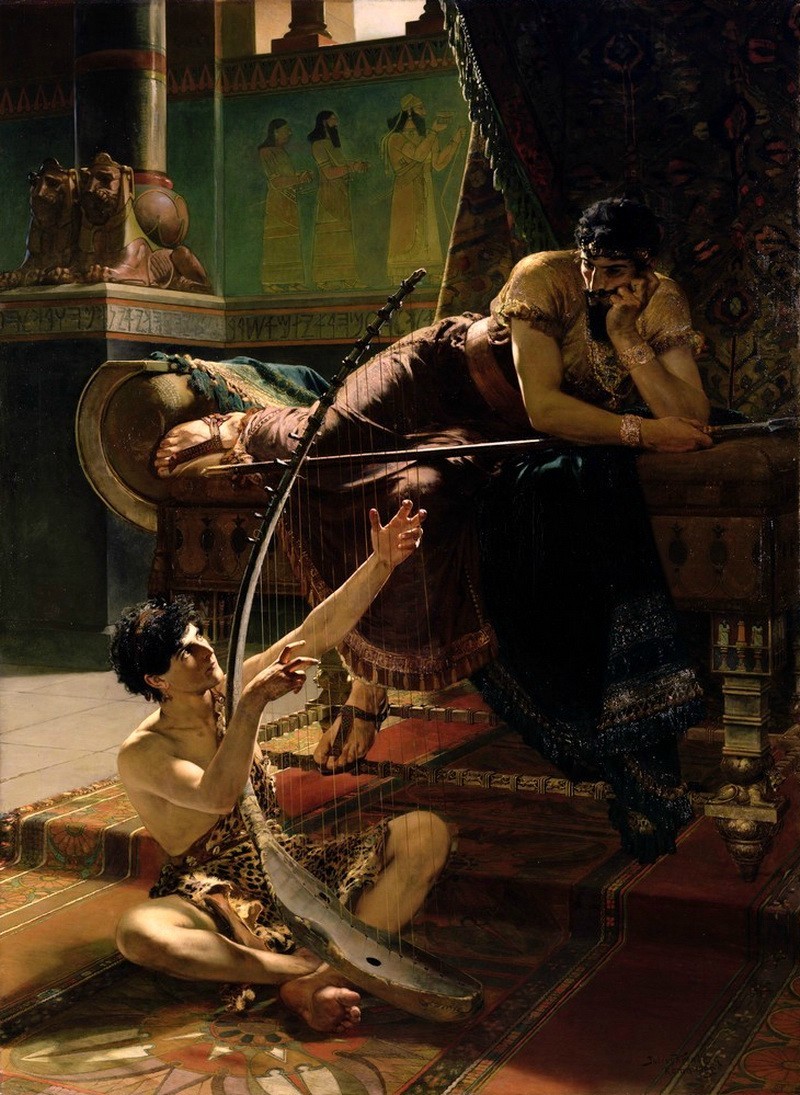01 Old Testament
| URL | Description |
|---|---|
| Abraham | Family Tree: Abraham's Family Tree |
| Battle of Jericho |  |
| Caleb | |
| Crossing the Red Sea |  |
| Cyrus the Great | Cyrus the Great is also well recognized for his achievements in human rights, politics, and military strategy, as well as his influence on both Eastern and Western civilizations. Having originated from Persis, roughly corresponding to the modern Iranian province of Fars, Cyrus has played a crucial role in defining the national identity of modern Iran.[23][24][25] Cyrus and, indeed, the Achaemenid influence in the ancient world also extended as far as Athens, where many Athenians adopted aspects of the Achaemenid Persian culture as their own, in a reciprocal cultural exchange. |
| Daniel | In the narrative of Daniel Chapter 2, it is the second year of the reign of Nebuchadnezzar and the king is distressed by his dreams,[v.1] so he summons his interpreters.[v.2] However, they are unable to relay or interpret the dreams.[v.10-11] The king is furious and demands the execution of all the wise men in Babylon,inculding Daniel and his three friends.[v.12] When Daniel learns of the king's terrible order, he asks the captain of the guard, Arioch, to let him see the king.[v.13-16] Daniel prays for God's mercy to receive a revelation from the king's dream.[v.15-18] God then reveals the mystery to Daniel in a vision that night.[v.19] Daniel praises God with a doxology.[v.20-23] After meeting with Arioch again, Daniel is granted access to the king,[v.24-30] and relays the description of the dream,[v.31-36] followed by its interpretation.[v.37-45] With Daniel's successful interpretation of the dream, the king expresses homage,[v.46] followed by his own doxology that affirms that Daniel's God is God of gods for revealing this mystery of his dream.[v.47] Daniel is then promoted to chief governor over the whole province of Babylon.[v.48] At Daniel's request, his companions are also promoted, so that they remain at the king's court as administrative governers.[v.49] 
|
| David |  |
| Delilah | |
| Hagar | |
| Isaac | |
| Ishmael | |
| Israelites (12 Tribes of Israel) | |
| Jacob | |
| Jeremiah | |
| Joshua | |
| Lot | |
| Lot's Wife | |
| Moses | |
| Nebuchadnezzar II | |
| Samson |  |
| Samuel (prophet) | |
| Sarah | |
| Saul | David and Saul
 |
| Solomon | |
| Ten Commandments |
|
| The Twelve Spies | |
| Tribe of Judah | |
| Wikipedia - Old Testament | Four canons:
|
| Zedekiah | According to the Hebrew Bible, Zedekiah was made king of Judah by Nebuchadnezzar II in 597 BC at the age of twenty-one. This is in agreement with a Babylonian chronicle, which states, "The seventh year: In the month Kislev the king of Akkad mustered his army and marched to Hattu. He encamped against the city of Judah and on the second day of the month Adar he captured the city (and) seized (its) king. A king of his own choice he appointed in the city (and) taking the vast tribute he brought it into Babylon." The kingdom was at that time tributary to Nebuchadnezzar II. Despite the strong remonstrances of Jeremiah, Baruch ben Neriah and his other family and advisors, as well as the example of Jehoiakim, he revolted against Babylon, and entered into an alliance with Pharaoh Hophra of Egypt. Nebuchadnezzar responded by invading Judah. (2 Kings 25:1). Nebuchadnezzar began a siege of Jerusalem in January 589 BC. During this siege, which lasted about eighteen months,[4] "every worst woe befell the city, which drank the cup of God's fury to the dregs". (2 Kings 25:3; Lamentations 4:4, 5, 9) In the eleventh year of his reign, Nebuchadnezzar succeeded in capturing Jerusalem. Zedekiah and his followers attempted to escape, making their way out of the city, but were captured on the plains of Jericho, and were taken to Riblah. There, after seeing his sons put to death, his own eyes were put out, and, being loaded with chains, he was carried captive to Babylon (2 Kings 25:1-7; 2 Chronicles 36:12; Jeremiah 32:4,-5; 34:2-3; 39:1-7; 52:4-11; Ezekiel 12:13), where he remained a prisoner until he died. After the fall of Jerusalem, Nebuzaradan was sent to destroy it. The city was plundered and razed to the ground. Solomon's Temple was destroyed. Only a small number of vinedressers and husbandmen were permitted to remain in the land. (Jeremiah 52:16) |